Google Glass brings the future of flying into focus
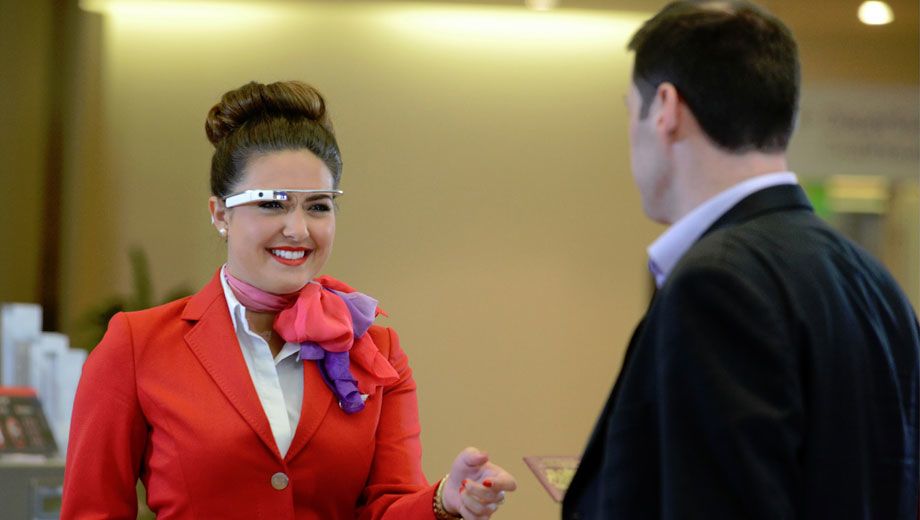
Smart watches, smart glasses and other wearable computing devices will be part of the airport of the future, according air transport industry IT provider SITA.
Technology observers are touting wearable computing as the next big thing that could re-define how we use and interact with information.
The biggest buzz is around smart watches and smart glasses, helped by launches from high profile consumer giants, Sony, Samsung, and especially Google, whose Google Glass 'smart specs' contains a tiny camera, display and a pared-down Android computer.
"2014 is shaping up to be the breakout year for wearable technology" predicts Jim Peters, Chief Technology Officer with SITA.
Virgin Atlantic this month launched a six-week trial of Google Glass and Sony Smartwatch technology at London Heathrow airport.
"From the minute Upper Class passengers step out of their chauffeured limousine at Heathrow’s T3 and are greeted by name, Virgin Atlantic staff wearing the technology will start the check-in process" SITA reports.
"At the same time, staff will be able to update passengers on their latest flight information, weather and local events at their destination and translate any foreign language information."
In future, the technology could also tell Virgin Atlantic staff their passengers' dietary and refreshment preferences – anything that provides a better and more personalised service.
Specilaised apps on the Google Glass and Sony SmartWatch 2 tap into Virgin Atlantic's passenger service system and push individual passenger information directly to the assigned concierge’s smart glasses or watch just as the passenger arrives at the Upper Class Wing.
“Wearable devices like Google Glass offer new opportunities to mobilize staff, keeping their hands free, while keeping them connected to the traditional check-in and reservation systems" explains Peters.
"Interaction can be via video analysis of what a staff member is looking at, like a boarding pass or bag tag, or voice recognition, or a combination of both.”
“It's no major surprise that our research into this developing technology shows that there are issues to address. This is inevitable with any new technology" Peters said, recalling that SITA's research arm SITA Lab "saw some of the same challenges when testing the first smartphones several years ago.”
SITA Lab has carried out tests of Google Glass across a variety of uses in airline and airport settings, including the development of an app called SWIFT Boarding using the smart headgear’s built-in camera as a scanner and the heads-up display.
The aim was to allow agents in the boarding area to securely scan and verify both a boarding pass and passport simultaneously wearing smart glasses. Both documents are held side by side while the app matches the two to ensure they belong to the same person.
As a proof of concept the SWIFT application was a success, SITA claims, with travel documents and loyalty cards easily scanned by smart glasses.
"However, the devices are not fast enough yet to be able to meet the high speed passenger processing requirements needed at airports" SITA cautions.
"Matching the documents takes longer than the industry’s one second benchmark making it unviable as an alternative to existing systems, until more powerful smart glasses are developed."
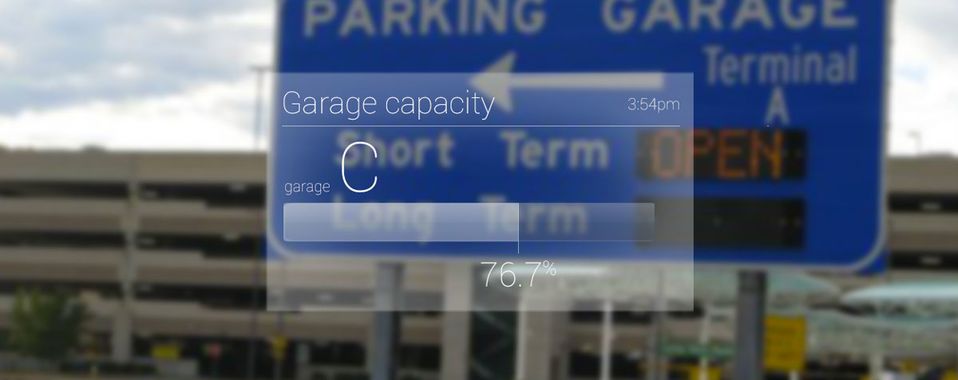
JetBlue
Peters added: “Specifically, our research at SITA has shown that for any type of use in the air transport industry the technology needs to be more robust to avoid breakages and the cost will have to come down."
The camera quality will also need to be enhanced, for one thing.
"Currently it requires near perfect light conditions within the airport for scanning documents to be successful."
"Other areas to be addressed include bandwidth for widespread use, battery life and of course the cultural and social issues both for passengers and employees.”
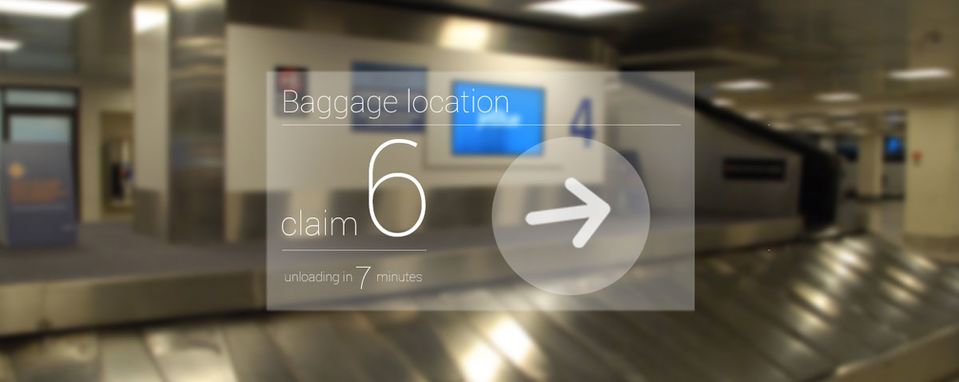
JetBlue
SITA LAb says that many of these same issues were identified in the early days of the smartphone and the expectation is that they will disappear as the next generation of devices are released.
Follow Australian Business Traveller on Twitter – we're @AusBT
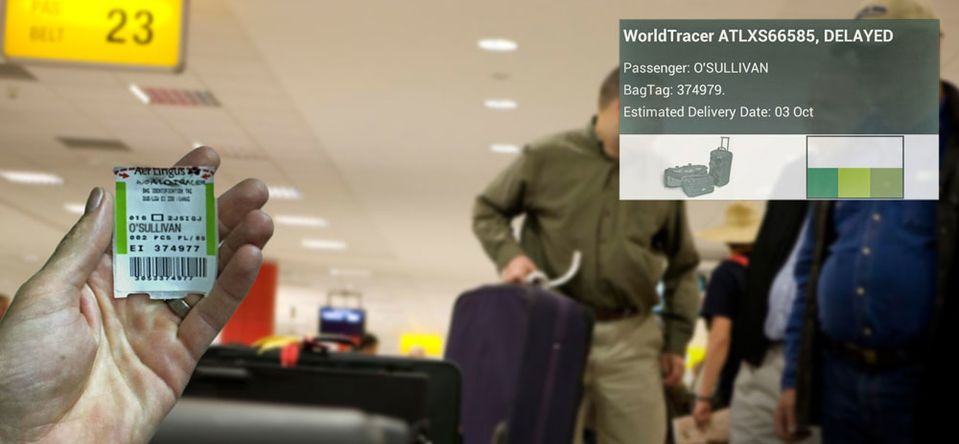
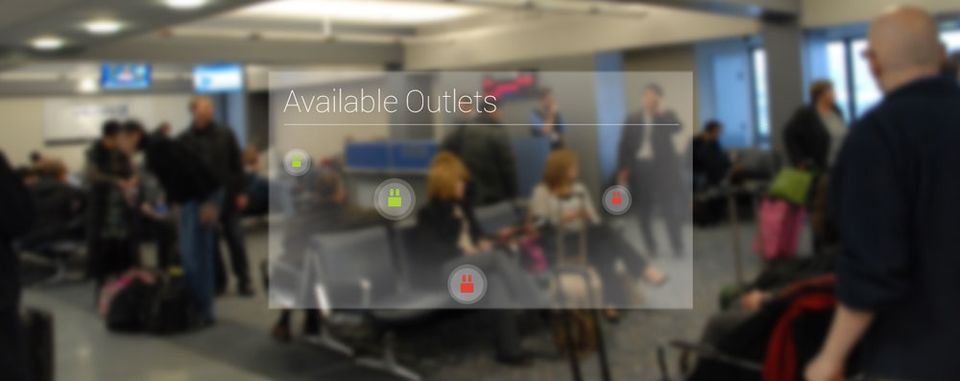
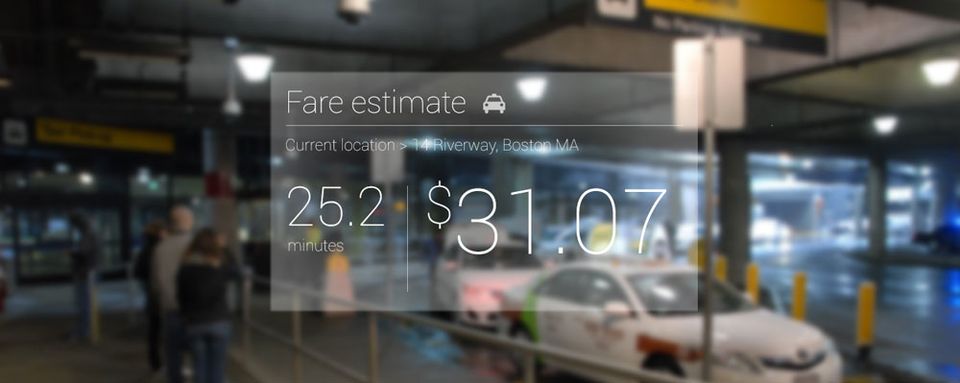
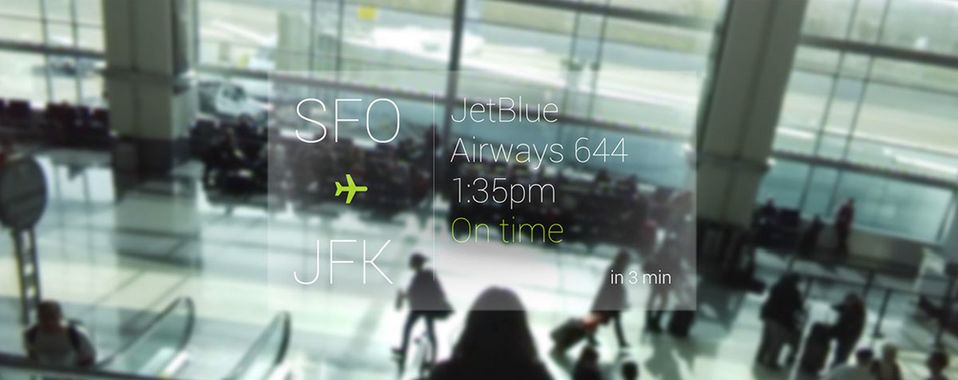

Qantas - Qantas Frequent Flyer
22 Sep 2012
Total posts 18
I'm kind of pleased to see an industry push and advocate for these advances in technology. There's far too much passion for 'the way things have always been done' in the world - SITA should get a firm pat-on-the-back.
12 Jun 2013
Total posts 732
Sounds like a solution looking for a problem.
Sure, glasses-based computers certainly have their place, especially in the workplace for certain kinds of job -- a warehouse or factory or construction site worker could glance around and get information on what is where, who is doing what, and what needs to be done next.
But the idea that normal people are going to walk around all day with silly-looking glasses on just so they can get information that they' could otherwise glance at their phones to get doesn't seem to me to be based on a solid understanding of human nature. People are too image-conscious to want to actually *wear* their computers.
As for "smart watches", remember digital watches? Remember how nobody wears them any more because they look naff? Having a smart watch saves you the trouble of pulling your smart phone out of your pocket, but it loses that advantage because it's got a tiny screen and is hard to interact with.
Hi Guest, join in the discussion on Google Glass brings the future of flying into focus